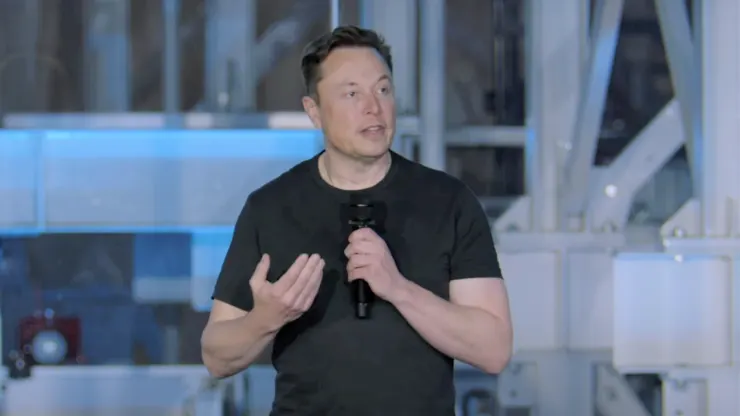Electric vehicle maker Tesla hosted a 2023 Investor Day presentation in Austin, Texas, on Wednesday. CEO Elon Musk took the stage to share his “Master Plan 3,” and to discuss how Tesla plans to scale up in the face of increasing competition.
The presentation was long on vision, and included a review of prior achievements, but short on specifics about any new Tesla products or services.
Near the beginning of the presentation, Musk said, “There is a clear path to a sustainable-energy Earth. It doesn’t require destroying natural habitats. It doesn’t require us to be austere and stop using electricity and be in the cold or anything.” He added, “In fact, you could support a civilization much bigger than Earth, much more than the 8 billion humans could actually be supported sustainably on Earth.”
Musk was initially joined on stage by the Senior Vice President of Powertrain and Energy Engineering at Tesla, Drew Baglino. They discussed a future in which the company would play a role in “re-powering the grid with renewable fuels” as they ramp up battery production, both for Tesla’s electric vehicles and for the company’s utility-scale energy storage systems.
Tesla’s goal is to produce 20 million electric vehicles per year by 2030, executives reiterated. The company reported full-year deliveries of around 1.31 million vehicles in 2022.
The company’s manufacturing leader, Tom Zhu, announced that as of Wednesday, Tesla had produced 4 million cars in total.
“It took us 12 years to build the first million, and about 18 months to the second million. The third million, 11 months. Then less than 7 months to build the 4 millionth,” Zhu said touting the company’s improving operational efficiency.
He said that the company plans to build new car and battery cell factories, and also to produce more cars per year at its existing factories.
Tesla charging leader Rebecca Tinucci said that in 2022 the company provided 9 terawatt hours across charging methods, including home charging including 40,000 Superchargers. (By way of comparison, the entire U.S. consumes about 4,000 terawatt hours of electricity per year.) Tinucci also noted that about half of the company’s Superchargers in the EU are open to other vehicles, and that the company just opened 10 Superchargers in the US to non-Teslas.
Tesla design leader Franz von Holzhausen and vice president of vehicle engineering Lars Moravy took the stage to show off a number of planned manufacturing changes meant to improve the efficiency of Tesla vehicle production. But von Holzhausen said that Tesla would not yet reveal its “next gen” vehicle.
The company’s powertrain vice president, Colin Campbell, said that Tesla’s next powertrain factory will be 50% smaller than the one in Austin, Texas, but will have the same capacity. He also said the company is working on a new kind of drive unit that is compatible with any battery cell type, and a motor that will be built without any rare earth metals.
Ahead of the 2023 Investor Day, at a press conference on Tuesday, Mexico president Andres Manuel Lopez Obrador said Tesla had agreed to build a large factory in Monterrey, Mexico. He said Tesla agreed to use recycled water and take other initiatives to cope with water-scarcity in the region.
Tesla shares have rebounded from declines during 2022, and are up more than 60% for the year so far. However, the stock dropped 1.43% on Wednesday prior to the event, and nearly 3% after hours.
Mizuho Securities analysts maintained a buy rating on shares of Tesla ahead of Investor Day, seeing Tesla in a leadership position in a growing market for fully electric vehicles. They wrote in a note earlier this week, “Near-term, we see continued strength in TSLA’s market share, but see cheaper competitor EVs coming to market as potentially dilutive to TSLA’s share of the US EV market.”
Currently, the lowest-priced Tesla available is the Model 3 sedan, which starts at a price point of around $43,000, they wrote. Seven models from other automakers are currently priced below that, Mizhuo noted.
Musk’s ambitious Master Plan Part Deux was published in 2016, and has not been completely fulfilled. It included four main objectives:
- “Create stunning solar roofs with seamlessly integrated battery storage”
- “Expand the electric vehicle product line to address all major segments”
- “Develop a self-driving capability that is 10X safer than manual via massive fleet learning”
- “Enable your car to make money for you when you aren’t using it”.

